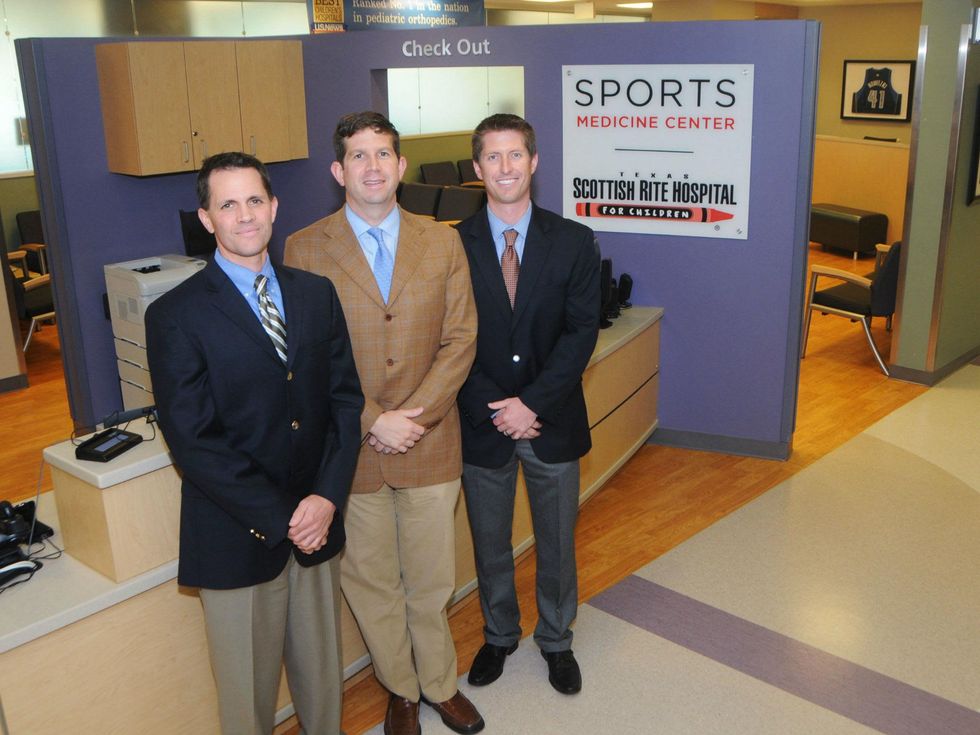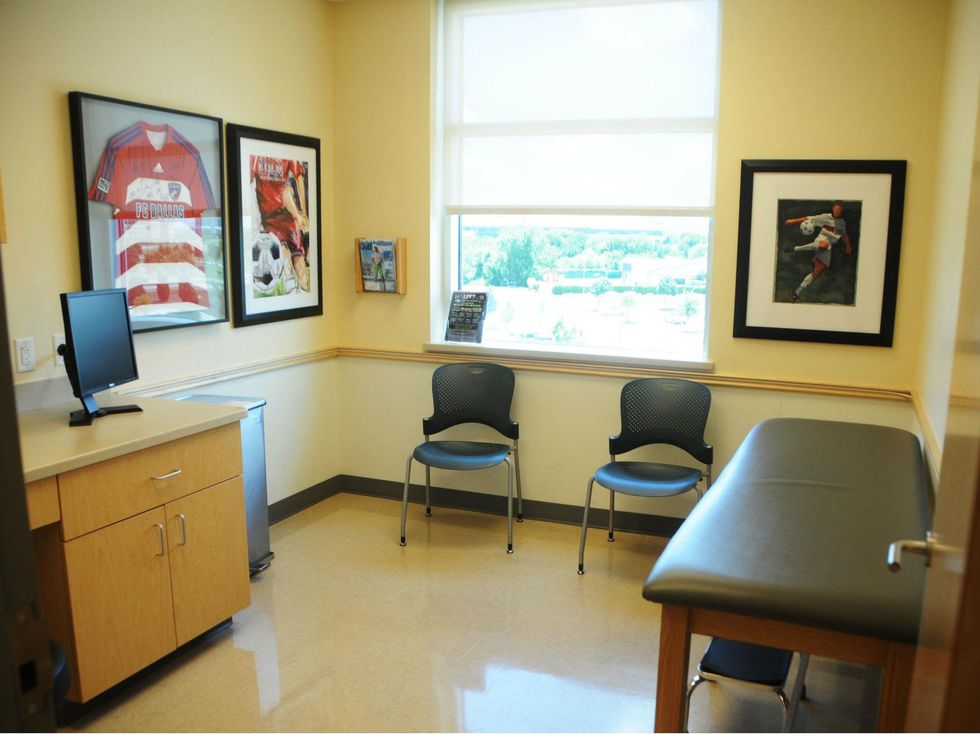Special Care for Young Athletes
Top-flight Dallas sports medicine center treats young athletes like pros
In many ways, the Texas Scottish Rite Hospital for Children Sports Medicine Center looks like a typical sports medicine clinic. With signed athletic jerseys and state-of-the-art physical rehabilitation equipment, you may expect to see Cowboys or Mavericks players working to become game-day ready.
The TSRHC Sports Medicine Center sees its fair share of linebackers and power forwards, but these patients are a little young for the pros. Focused on assessing and treating acute and chronic sports-related injuries in young athletes, these experts understand the importance of athletics to their young patients, both from a physical and emotional perspective.
Diagnosing and treating young athletes takes more than a skilled understanding of pediatric orthopedics; it requires a sensitivity and comprehension of what it means to be a child experiencing an injury that is keeping him or her from doing what he or she loves.
Pediatric sports physician and orthopedic surgeon Dr. Henry Ellis knows the impact an injury can have a young athlete’s body and mind. A graduate of University of Texas Health Science Center San Antonio with a residency at University of Texas Southwestern Orthopedic Residency, Dr. Ellis has diagnosed and treated hundreds of athletes throughout his career. As an athlete himself and former physician for the U.S. women’s ski team, Dr. Ellis understands athletes’ physical and mental drive, determination, and the potential psychological effect of an injury.
It is apparent when observing Dr. Ellis with his patients that taking care of their mental health is as important to him as treating their physical injuries. Eric is a 14-year-old football and baseball player with a serious elbow injury. He is currently in the middle of baseball season in Waxahachie, and his team is likely headed to the Little League World Series in July.
Dr. Ellis knows telling this young man and his mother that he should no longer play baseball will not be easy. After spending some time discussing how current pitching regulations and mechanics may have caused his initial injury, Dr. Ellis shifts the conversation. “I’m not here to lecture you. Let’s talk about goals and how we can address them.”
While talking about the injury and an upcoming surgery with Eric and his mother, Dr. Ellis agilely shifts between addressing technical details and pragmatic concerns, including the emotional impact of Eric’s leaving baseball mid-season. Eric is also a skilled football player, and Dr. Ellis encourages him to shift his athletic focus exclusively to football, which would not have the same damaging effects on his elbow as baseball.
Ultimately, Dr. Ellis leaves the next steps to Eric and his mom. “We have a little bit of soul searching to do right now.”
It is this care and attention to the whole child that makes Texas Scottish Rite Hospital for Children Sports Medicine Center such a special place. With a team of surgeons, physicians, nurse practitioners and physical therapists, every detail of this practice is focused on treating children. Sports-related concussions, sports-related injuries, growth-plate injuries and stress fractures are all treated with careful attention to the unique physiology of a child.
Dr. Ellis sums up the center perfectly when talking to a nervous 11-year-old boy about a procedure Dr. Ellis will perform on his knee.
“We’re talking a lot of adult talk, but we’re talking about you — your knee. We work in a place where everyone takes care of kids. So we’re all going to take really good care of you. Does that sound okay?”
The little boy nods, and with a high-five from Dr. Ellis, he says, “It’s okay.”
For more information on the TSRHC Sports Medicine clinic, please visit www.tsrhc.org/sports-medicine or call 469-303-5000.
Texas Scottish Rite Hospital for Children has been caring for children since 1921. TSRHC treats children with orthopedic conditions, such as scoliosis, clubfoot, hand disorders, hip disorders and limb length differences, as well as certain related neurological disorders and learning disorders such as dyslexia. For more information or to get involved, visit scottishritehospital.org or Facebook.com/tsrhc, or call 214-559-5000.
Dr. Ellis (second from right) is one of the medical staff who join Texas Scottish Rite Hospital patients on the its annual amputee ski trip in Winter Park.




